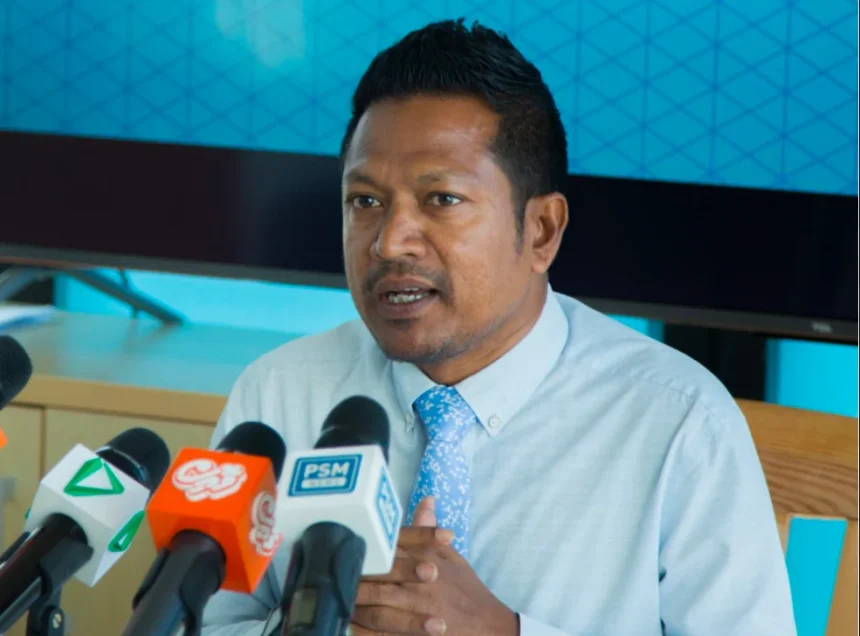In a statement made on social media yesterday, Imthiyaz Fahmy (Inthi), President of the Democrats, emphasized that only the Parliament holds the authority to create and amend laws, including constitutional amendments. His remarks come amidst the ongoing legal proceedings concerning a recent amendment to the Maldivian Constitution that would disqualify Members of Parliament (MPs) from their seats if they switch political parties.
The Supreme Court heard a case on Monday regarding the controversial amendment, which was introduced to prevent MPs from changing parties after being elected. The petition, filed by former MP Ali Hussain, challenges the amendment, arguing that it is unconstitutional and should be annulled.
The case has drawn significant attention, with various political parties expressing their concerns. The Public Prosecutor’s Office, in court, argued that the Supreme Court should not entertain the case, as the amendment does not constitute a constitutional issue.
On social media platform X, Imthiyaz reiterated his stance, asserting that only Parliament has the right to alter the Constitution. “Only Parliament has the power to make and amend laws,” he wrote, reinforcing the Democrats’ position that the amendment, though passed through the constitutional procedure, should not be subjected to judicial review.
The case, which stems from a constitutional amendment ratified by President Dr. Mohamed Muizzu within 24 hours of its passage last year, stipulates that MPs who leave their original political party or are expelled will lose their parliamentary seat. The provision also applies to independent MPs who later decide to join a political party.
The case was filed by Ali Hussain, who seeks to have the amendment nullified, claiming it violates constitutional principles. The Attorney General’s Office, represented by Uza. Fathimath Haleem, raised procedural objections during the court hearing. The office argued that constitutional amendments, if enacted following the proper procedures, cannot be contested in court as they are considered part of the constitution.
Uza. Fathimath clarified that while the amendment is labeled as a law, it does not hold the same status as regular laws. She stressed that constitutional amendments must adhere to specific procedures, and treating them as ordinary laws would lead to significant procedural issues.
The case continues to stir debate, with opposition parties, including the Maldivian Democratic Party (MDP) and Democrats, previously voicing their concerns. However, only the MDP intervened in the case, while the Democrats chose not to participate in today’s hearing.
As the legal battle over the amendment progresses, the tension between legislative authority and judicial review remains at the forefront of the debate, with both sides preparing for a larger discussion on the role of Parliament in constitutional amendments.




